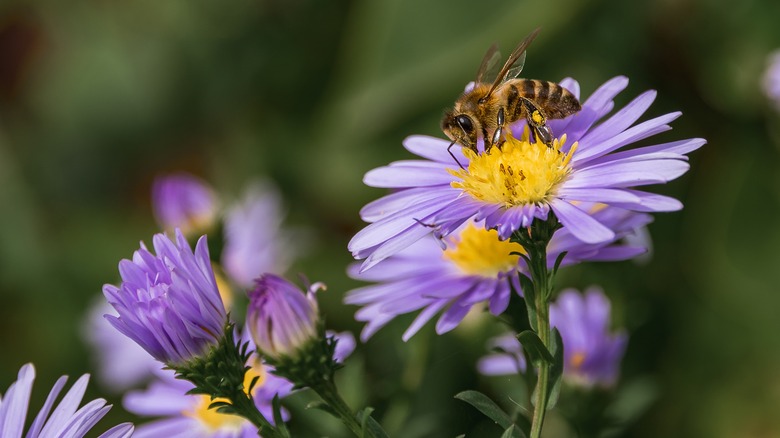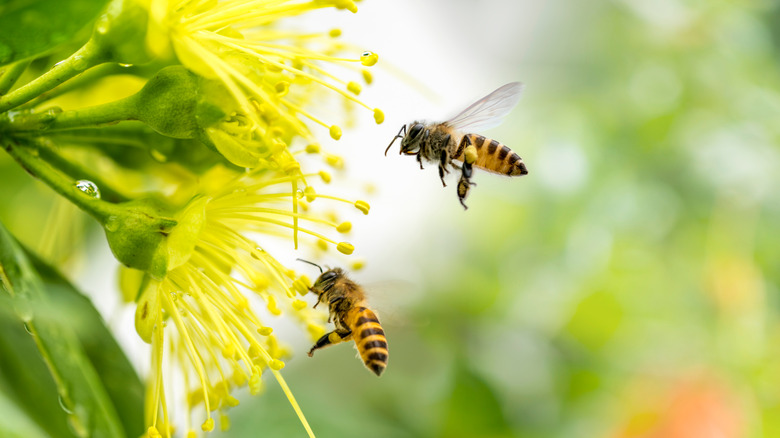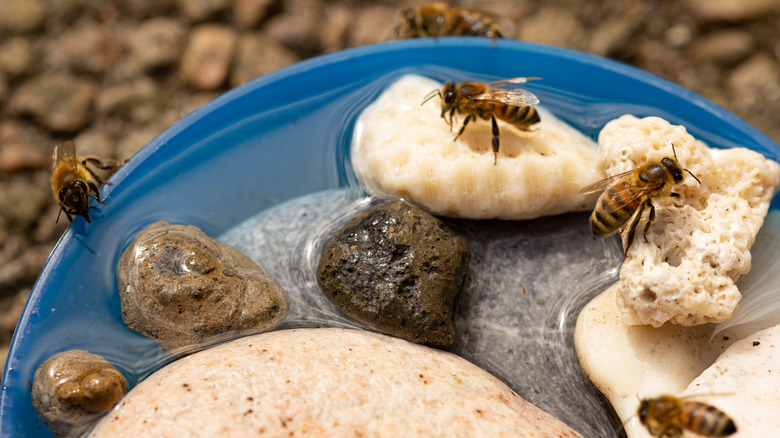Why You Shouldn't Get Rid Of The Bees In Your Backyard
The next time you see a bee buzzing in your backyard, take a moment to watch as it flies. It may come as a surprise to learn that when bees dart between flowers to gather nectar, they're dancing. That's right; they like to shake it. It's how the fascinating creatures communicate, like when they soar in circles to tell their fellow hive mates that nectar is nearby. They also offer a distinct dance that warns others that danger is near, or they jiggle for joy when their queen appears. Bees do this by trembling, whirring, or even waggling, each time communicating a message to the group. These creatures are always working together for the good of their hive. However, it's also essential to discover how helpful they are to the rest of the planet.
These tiny creatures carry the weight of the world on their small shoulders because of the role they play in fertilizing plants through pollination. A vast majority of the world's plant life relies on pollinators like bees to reproduce. Since the world relies on many of these crops for survival, it's understandable why so many people are passionate about saving the bees. However, pollination is only one reason these creatures are essential. So if your backyard is home to some buzzing friends, here's why you shouldn't get rid of them.
Bees play an important role
Each small bee is an essential part of its ecosystem. For example, the flowers and plants pollinated by bees provide an environment where other types of insects can thrive. Many animals depend on these insects and plants for food, making them integral to many different habitats. They also make an important contribution to the world's economic landscape. The floral industry would not survive without their role in pollinating flowers, and the honey they produce is a valued food product. Honey is also becoming a necessary ingredient in different cosmetic and beauty products.
Bees' role in the world's food supply cannot be overestimated. The work of each one contributes to a supply of crops estimated to be worth up to $577 billion, which feeds millions of people worldwide. But unfortunately, the number of beehives worldwide has been declining for years. This change is threatening the food supply and livelihood of populations around the globe.
Helping bees thrive
Many factors threaten the bee's existence, such as common inorganic pesticides. These often contain chemicals that eradicate other pests from a garden or field, but bees also fall victim to their poisonous effects. Another threat is monoculture farming. This is the practice of planting a single crop over many acres of farmland, limiting the amount of nectar a bee can collect and return to its hive. This practice limits the benefits of pollination between different plant species. Deforestation also harms the creatures as it disrupts their habitats and mating opportunities.
The good news is that small steps can be taken to help. Plant a garden with flowers like milkweed that will attract them. Use only organic herbicides in your yard, and consider signing a nationwide petition to eliminate toxic chemicals from common pesticides. You can also provide bees with a drink of water so they'll feel replenished as they travel to and from their hive. Fill a wide bowl with marbles or rocks and pour water into the bowl, changing it weekly to discourage mosquitoes. The rocks will prevent the bees from falling into the water as they get a drink. Once it's understood how important these creatures are, you'll no longer try to shoo them away from your backyard but look for ways to attract and protect them. Then sit back, and enjoy watching them dance in your garden.


